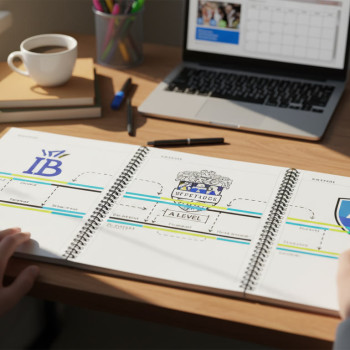Navigating AP at UVA: Why This Matters
If you’re a student (or parent) mapping the route to the University of Virginia and wondering how AP exams fit into the picture, you’re not alone. AP scores can do more than decorate your college application—they can earn you credit, let you place out of introductory classes, help you move faster into major-level courses, or simply give you flexibility in your first year. This matters slightly differently depending on whether you’re headed for a College (liberal arts and sciences) pathway, Engineering, or Commerce (business/economics) track. In this post we’ll walk through the differences, offer practical examples, and give study and application strategies that respect both the AP program’s design and the realities of competitive college planning.
Throughout, I’ll point out realistic ways to use your AP strengths—plus how tailored support like Sparkl’s personalized tutoring (1-on-1 guidance, tailored study plans, expert tutors, and AI-driven insights) can help you translate AP performance into admissions and academic advantages when it fits naturally into your plan.
Quick AP Fundamentals (What Every Student Should Know)
Before we compare the three pathways, let’s level-set on a few AP basics so your decisions are grounded in fact.
- AP Exams are scored 1–5; many colleges award credit or placement for scores of 3, 4, or 5 depending on the school and subject.
- Credit means you earn college credits toward your degree; advanced placement means you can skip an introductory course and move to a higher-level class.
- Policies vary by institution and by department—some departments (especially in engineering and some sciences) set higher score thresholds for credit or placement in their major courses.
- Use your free annual score send before the deadline to make sure colleges receive your report; if you plan to secure credit or placement, check deadlines and departmental requirements early.
These are not academic rumors: they are how the AP program and colleges commonly operate—so verify specific departmental policies at UVA as you finalize decisions. Meanwhile, let’s get tactical for each path.
Pathway 1 — College (Liberal Arts and Sciences)
How AP Is Typically Used
For students heading into the College of Arts & Sciences, AP scores often translate into general education credit or allow students to skip intro-level courses. That means more room in your schedule for electives, research, study abroad, or a double major. Departments like history, English, psychology, and many social sciences commonly accept AP scores for introductory equivalencies—especially when you earn a 4 or 5.
Strategic Advantages
- Flexibility early on: skipping a required intro course can free a semester for advanced electives, internships, or honors coursework.
- Concentration sooner: if you want to dive into a major’s upper-level seminars as a sophomore, AP placement makes that more realistic.
- Opportunities for academic exploration: with core requirements satisfied, you can test interdisciplinary interests without falling behind.
Example Plan
Suppose a student scores 5 on AP English Language and 4 on AP U.S. History. At many colleges, those scores might satisfy first-year writing and a history distribution requirement—so the student could take a seminar in a focused historical topic in sophomore year instead of a general survey.

Pathway 2 — Engineering
How AP Works in Engineering Tracks
Engineering majors often face a heavier, sequenced curriculum where the timing of calculus, physics, and core engineering courses matters. Departments tend to be conservative: many require high AP scores (often 4 or 5, and in specific subjects like Calculus BC or AP Physics C) to grant placement into higher-level math or physics courses. That’s because foundational knowledge is critical for success in accelerated, concepts-intensive classes.
Why Score Thresholds Are Stricter
Engineering faculty typically want assurance that a student has mastered the problem-solving and technical skills needed for sophomore-level coursework. That means AP for engineering is less about getting credit to graduate early and more about ensuring you’re ready to enter courses that build sequentially—so placement is the main prize.
Typical AP Targets for Engineering Students
- AP Calculus BC (or AB with strong performance) — often used for placement into first-year calculus sequences.
- AP Physics C: Mechanics and Electricity & Magnetism — valued for mechanics/physics placements.
- AP Chemistry — useful for engineering disciplines that require chemistry foundations (chemical, materials, biomedical).
- Computer Science A — increasingly relevant for many engineering programs.
Example Plan
Imagine a student with a 5 on Calculus BC and a 4 on AP Physics C. They might be placed into second-semester calculus or an accelerated physics/engineering course in their first semester—this avoids repeating foundational material and lets them begin major courses on time. But remember: some engineering programs prefer or require their own internal placement tests or advising sessions to confirm readiness.
Pathway 3 — Commerce (Business, Economics, Commerce-Related)
How AP Fits Commerce Pathways
For commerce and business-oriented majors, AP exams in calculus, statistics, and economics can be especially valuable. AP Microeconomics and AP Macroeconomics can translate into introductory economics credits, while AP Calculus and AP Statistics can satisfy math prerequisites or allow placement into higher-level quantitative courses. Business schools often appreciate both the content knowledge and the evidence of quantitative readiness that AP success demonstrates.
Strategic Uses
- Clear the prerequisites: scoring well on AP Calculus or AP Statistics can free you from a prerequisite and allow immediate enrollment in higher-level business analytics or econometrics classes.
- Strengthen your application: demonstrating depth in quantitative AP subjects helps in competency-heavy admissions assessments for commerce schools.
- Use placement to access special programs: some commerce tracks offer honors or accelerated tracks that expect incoming students to have calculus or economics fundamentals.
Example Plan
A student who earns a 4 on AP Calculus AB and a 5 on AP Microeconomics might be able to skip introductory calculus and introductory economics, allowing them to take intermediate micro/econ-stat courses and start a data analytics elective in the first year.
AP Score Decisions: Credit vs Placement vs Application Signal
AP scores play three distinct roles, and each pathway emphasizes them differently:
- Credit: Earns you college hours. This is often most visible for College and Commerce pathways where breadth requirements exist.
- Placement: Lets you skip intro courses and move directly into higher-level, major-specific courses—critical for Engineering.
- Application Signal: Strong AP performance demonstrates academic rigor and preparedness to admissions committees across all pathways.
A Practical Comparison Table
| Aspect | College (Arts & Sciences) | Engineering | Commerce |
|---|---|---|---|
| Most Useful APs | English, History, Biology, Calculus | Calculus BC, Physics C, Chemistry, CS A | Calculus, Statistics, Microeconomics, Macroeconomics |
| Primary Benefit | Credit and schedule flexibility | Placement into sequential, required courses | Prerequisite clearance and strong application signal |
| Typical Score Threshold for Placement/Credit | 3–5 (varies by subject) | Often 4–5 for math/physics | 3–5; quantitative courses prefer 4–5 |
| When to Send Scores | Before deadlines; use free annual send | Before orientation/advising for placement | Before registration to claim prerequisites |
How to Build an AP Strategy That Matches Your Path
1. Start with the Major Requirements
Open the major checklist. Identify which introductory requirements can be satisfied by AP and which require departmental approval. For engineering, pay special attention to sequences—having the right calculus and physics placement is often non-negotiable.
2. Prioritize High-Impact APs
If you’re limited in how many APs you can take well, choose those that align with your intended major. High-impact APs are not always the most prestigious ones; they’re the ones that most closely map to the courses you’ll need.
3. Think Terms of Readiness, Not Shortcuts
Sometimes it’s more beneficial to take the college’s introductory course even if you could claim AP credit—especially if that class includes local context, lab components, or foundational advising. Use AP to accelerate when you’re truly ready, not just to skip credits.
4. Time Your Score Sends
Use the free score send option during the year you take exams to notify colleges of your performance. If you need placement decisions before orientation, make sure to send scores early enough for departmental review and advising.
Study and Exam Tips (Practical, Tested Moves)
- Master the core skills: AP exams reward conceptual clarity and consistent practice. For Calculus, focus on multistep problem solving; for Physics, work on translating words to equations; for English, practice synthesis and timed writing.
- Use mixed practice tests: periodically simulate a full AP exam under timed conditions to build stamina and reveal pacing issues.
- Target weak points with deliberate practice: after each practice test, log the question types you missed and create short, focused study blocks for each skill.
- Get feedback on free responses: practice essays and FRQs are only useful if reviewed by a coach, teacher, or tutor who can give specific, actionable feedback on rubric alignment.
Personalized tutoring—like Sparkl’s 1-on-1 guidance, tailored study plans, expert tutors, and AI-driven insights—can be particularly effective here because it turns general advice into a schedule that fits your school, extracurriculars, and mental bandwidth.
When AP Results Don’t Go as Planned
Not every AP score will be perfect, and that’s okay. If a key AP score misses the threshold, you have options:
- Take the equivalent college course: many students who narrowly miss placement take the intro course and still accelerate later.
- Talk to advisors: departments can sometimes offer placement exams or provisional placement, especially if you demonstrate competence in a related course.
- Use the first semester to prove readiness: high marks in the college’s intro course can let you move into higher-level classes quickly.
How Admissions View APs (Application-Stage Considerations)
Admissions teams look at APs two ways: as evidence you pursued rigorous courses and as an indicator of subject readiness. Strong AP performance strengthens your application across pathways, but it’s always one part of a holistic review that includes coursework, essays, recommendations, and extracurricular engagement.
Checklist: Action Items for Students and Families
- Identify the AP exams most relevant to your intended major.
- Check UVA’s departmental placement/credit requirements well before application deadlines and orientation (confirm exact score thresholds and any departmental tests or portfolio requirements).
- Plan your testing calendar so score reporting deadlines align with admission and placement timelines.
- Use at least one timed full-length practice exam per month during the last three months before test day.
- Consider targeted tutoring for high-impact APs; personalized 1-on-1 tutoring can raise scores efficiently if time is limited.
Real-World Examples (Short Case Studies)
Case Study A — The Explorer (College Path)
Jasmine had 4s on AP Biology and AP English and used those placements to skip two general education courses. Freed space allowed her to take a semester-long field methods course abroad in sophomore year—an experience that became the heart of her honors thesis.
Case Study B — The Engineer in a Hurry
Marcus scored a 5 on Calculus BC and a 4 on Physics C. Placement into a second-semester calculus course and an introductory engineering lab allowed him to start major-specific labs as a freshman—he used that head start to join a robotics research group and land a competitive internship the next summer.
Case Study C — Commerce Prep
Priya had a 4 in AP Calculus AB and a 5 in AP Microeconomics. She placed out of intro math and intro econ, giving her time to enroll in a data analytics elective and an entrepreneurship seminar in her first year—both of which strengthened her application for a summer business program.
Wrapping Up: The Big Picture
AP exams are a powerful tool, but their value depends on how deliberately you use them. For College students, APs often buy flexibility; for Engineering students, they’re about readiness and placement; for Commerce students, they clear quantitative prerequisites and strengthen your profile. The smartest strategy is to align AP choices with your intended major, prioritize high-impact exams, and plan score sends and course decisions in consultation with advisors.
If you need help turning this plan into a calendar, a study routine, or a set of targeted review sessions, consider personalized support. Thoughtful 1-on-1 tutoring—like Sparkl’s approach with tailored study plans, expert tutors, and AI-driven insights—can convert your strengths into the scores and placements that open doors, without burning you out.

Above all: treat AP exams as part of a broader academic narrative. They should support your curiosity and your plans—not define them. With thoughtful planning, practice, and the right help at the right time, APs can be a genuine springboard into meaningful college experiences.
Final Practical Reminders
- Verify department-level AP policies directly with UVA departments and advisors to confirm exact thresholds and processes for placement or credit.
- Send scores early enough for placement and advising decisions.
- Balance ambition with realistic scheduling: taking too many APs at once can dilute performance.
- Use targeted support—coaching, review sessions, and focused practice—to maximize the return on each AP you take.
A Short Note to Parents
Your support matters most as cheerleader and planner. Help your student prioritize, arrange time for practice exams, and find targeted help when they’re stuck—encouragement combined with a calm plan is one of the best predictors of success.
Want a Next Step?
Create a simple two-week plan right now: pick one AP topic area to review daily for 45–60 minutes and schedule a timed practice FRQ or section test at the end of the two weeks. If you want a guided plan tuned to your student’s schedule and weak points, consider a short block of personalized 1-on-1 tutoring sessions to get immediate feedback and momentum.
Good luck—approach APs as preparation, not pressure. With strategy and steady work you can shape AP results into real opportunities for UVA and beyond.















No Comments
Leave a comment Cancel